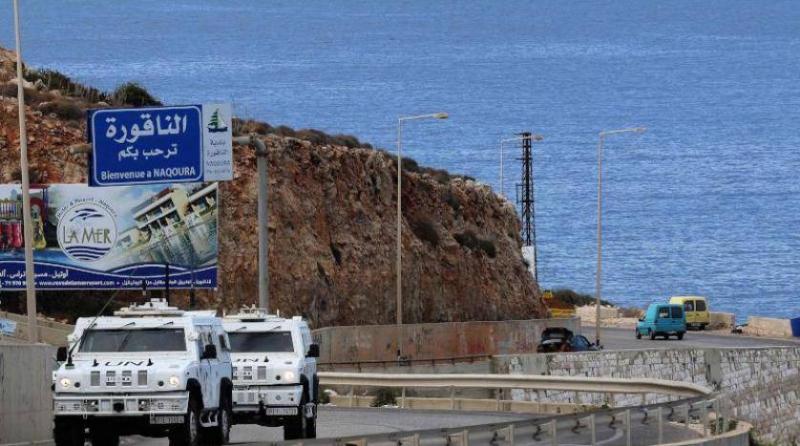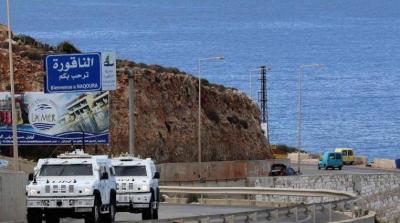Lebanon continues to await a response from Israel regarding the proposal delivered to U.S. President's Special Envoy for Global Energy Security, Amos Hochstein. Tel Aviv is attempting to evade responsibility, citing a political and governmental crisis, thus lacking the capacity to provide an answer. Lebanon is pressing for a resolution on the matter.
The situation is not passing unnoticed by Lebanon, as there are increasing Lebanese objections through diplomatic channels to reach a formula related to halting the operations of the Greek company Energean Power's vessel. The Lebanese messages sent, particularly to American and European parties, aim to expedite a response or seek a resolution, with Lebanese assurances that Lebanon is the one desiring a solution, and President Michel Aoun insists on quickly finalizing the file and starting oil exploration before the end of his term. If no agreement is reached, Israel must halt the vessel's operations and move it away from the Karish field, while Lebanon has indicated that if operations do not cease, it will communicate with the United Nations to lodge an objection, conveying that this step will lead to increased pressure or new sanctions.
The United Nations' involvement
All these developments in the background prompted Hochstein to hold another meeting with Israeli officials in an attempt to revive negotiations, informing Lebanon that efforts are ongoing. Concurrently, the Personal Representative of the UN Secretary-General in Beirut has been holding multiple meetings with official leaders and prominent political forces involved in this issue. The goal is for the United Nations to engage in this specific file, to establish stability on the borders, prevent any escalation, and explore possibilities for finding a solution.
These meetings also included discussions about the operations of the international peacekeeping forces in the south, a month ahead of the renewal of their missions without amendments. In this context, the recent visit of Foreign Minister Abdullah Bou Habib to Naqoura was notable.
The path taken by the United Nations in Lebanon is accompanied by another trajectory on the Israeli side, as diplomatic sources reveal a forthcoming visit by a UN delegation to Tel Aviv to meet with Israeli officials and discuss the demarcation file, the potential for its quick completion, and the possibility of playing a role in discouraging Israel from provoking Lebanon through continued operations in the Karish field. Crucially, there is a need to prevent any escalation, as any security or military mistake could lead to a confrontation or conflict that no one desires.
Return to the rejected offer
The UN delegation is expected to inform the Lebanese side about the atmosphere and outcomes of its discussions with Israel. Meanwhile, as the Israeli side insists on playing for time to impose a fait accompli by starting oil extraction from the Karish field, efforts are ongoing to re-present what Hochstein proposed during his penultimate visit to Lebanon: the principle of exploration through global companies that would drill to enable extraction from the fields, before reaching a solution for demarcating the borders.
Lebanon has categorically rejected this offer, as it falls within the context of oil or economic normalization, knowing that the Greek company Energean Power is owned by an Israeli-Greek individual, who attempted to present such an offer that Lebanon deemed a trap.
Awaiting an understanding
This proposal is definitively rejected by Lebanon, while internal attempts continue to exert pressure to bring in companies that do not succumb to U.S. pressures to start drilling operations in areas not deemed disputed. However, the official position of Lebanon still opposes this idea due to its negative repercussions.
It is not feasible to bring in Iranian or Russian companies due to sanctions, and there does not seem to be enthusiasm from Chinese entities for such a step, nor to engage in conflict or tension areas. Thus, Lebanon continues to wait and does not appear capable of pursuing any alternative path other than reaching an understanding. It may reach out to the companies that won the bids, requesting them to resume work, noting that their operating period has been extended. Some believe that these companies may not be able to continue working in the future.
There is no American desire to give a role to the French Total company due to its partnership with the Russian Novatek, which has been sanctioned. There is an enhancement of American-Italian relations in the Mediterranean, which has begun to manifest in Italian-Egyptian agreements. This will benefit the Italian ENI company, in addition to other American companies, like Chevron and Exxon Mobil, seeking to enter the tenders and operate in Lebanese waters.




